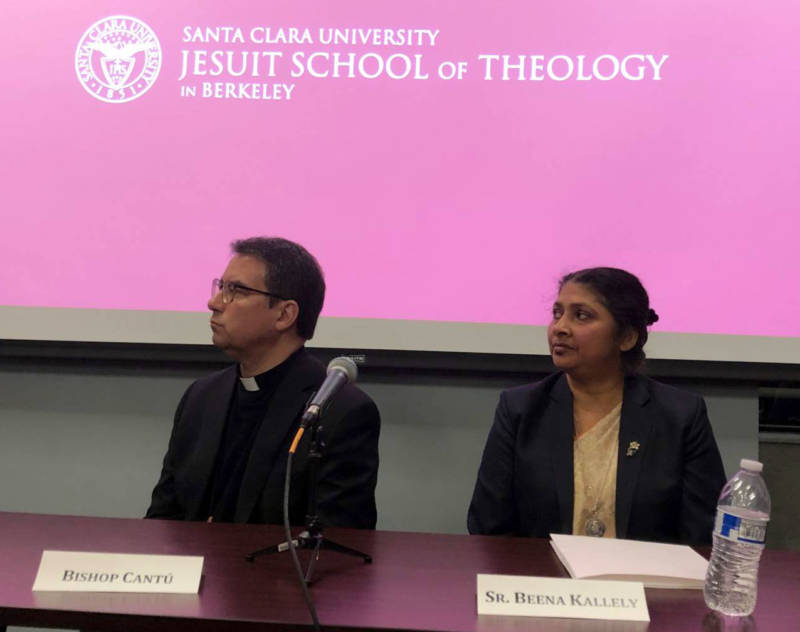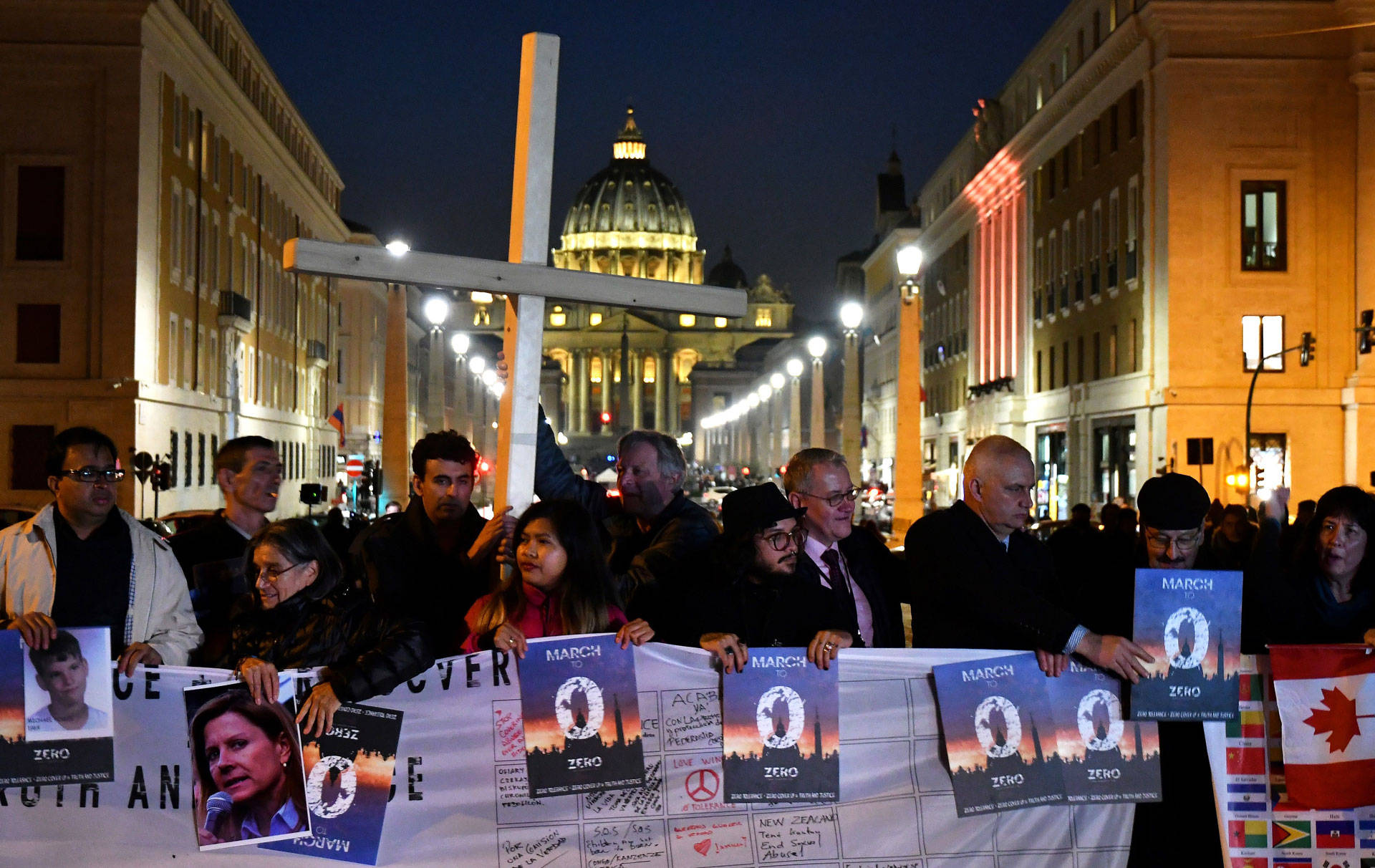More than 100 Catholic leaders from around the globe are gathering in Rome this week for a major summit addressing sexual abuse of children in the church.
In California, clerics and scholars hope the summit will lead to changing a church law that currently exempts higher-ups — like bishops and cardinals — from holding each other accountable in cases of abuse.
“I hope we will see clear protocols for accountability of bishops,” said Oscar Cantú, Bishop of San Jose, speaking after a panel discussion about global attitudes towards sex abuse in the Catholic Church at the Jesuit School of Theology of Santa Clara University in Berkeley on Wednesday. “So when a bishop is accused of direct abuse or of mismanagement, it is dealt with in a way that is swift, transparent and accountable.”
“There is a lack of clarity on what procedures and policies exist in the church,” said panelist Beena Kallely, a Catholic nun and Jesuit School of Theology doctoral student who wrote her graduate degree thesis on child sexual abuse in India. “Who is responsible when such abuse occurs?”
Dioceses across the country have recently started releasing lists of clergy members credibly accused of sexual abuse of minors.
The Diocese of Oakland published its list earlier this week. But these lists do not typically include the names of the heads of dioceses, those in even higher office, or lay people working in the dioceses.

That’s because of a loophole in the Dallas Charter (the Charter for the Protection of Children and Young People) — a set of procedures established by the United States Conference of Catholic Bishops in 2002 aimed at addressing allegations of sexual abuse of minors by Catholic clergy.
“The Dallas Charter put in place a zero tolerance policy for child abuse,” said Cantú. “So any cleric who commits child abuse, that’s it; they’re out.”
However, the rules in the charter were written so that they don’t apply to the people in charge.
“One bishop does not have authority over another bishop. Only the pope does,” said Cantú. “So how would that be handled?”
The rules the 2002 Conference of Bishops wrote applied to priests and deacons, as seen in the companion document to the Dallas Charter, the Essential Norms for Diocesan/Eparchial Policies Dealing With Allegations of Sexual Abuse of Minors by Priests and Deacons.”
